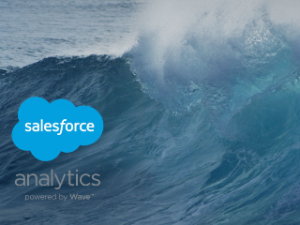How mobile games are influencing business apps



We’ve all seen that look: the intense concentration over a smartphone screen, where a friend or coworker is so engaged they don’t even look up when someone asks them a question, or when they seem more interested in tapping away at their keypad than taking a break for lunch. That’s right: your

We’ve all seen that look: the intense concentration over a smartphone screen, where a friend or coworker is so engaged they don’t even look up when someone asks them a question, or when they seem more interested in tapping away at their keypad than taking a break for lunch.
That’s right: your colleague is playing Candy Crush Saga on the job again.
Compared with mobile games, everyday people have rarely been as eager to immerse themselves in business apps, for obvious reasons. That’s why, when Salesforce unveiled Wave, the Salesforce Analytics Cloud at Dreamforce 2014 this week, executives drew particular attention to the user interface of the product.
“This is a game-inspired UI,” Mark Benioff, chairman and CEO, Salesforce, told the keynote crowd in San Francisco. “We wanted to create the kind of products that all of you are using.”
Wave Analytics Cloud is designed to take data from a range of sources and help organizations gain insights they can use to gain a competitive advantage. Unlike traditional analytics tools, though, it was created for business users, not just analytical specialists. The interface reflects that, with colors and moving elements that make it fun to use, not just helpful to use.
This concept of creating software as addictive as Angry Birds has been gaining traction in all kinds of firms across Canada. Sun Life Financial, for example, has been using an online game to break down retirement savings plans into a series of “missions” its customers complete. Air Canada’s “Earn Your Wings” program increased the loyalty of frequent fliers by giving them badges and rewards for miles flown and other activities. The University of Waterloo’s Stratford campus has set up a research lab to see how gamification could be used in HR, health care and many other fields.
What Wave Analytics Cloud and these projects share is an understanding of why mobile games resonate with people. The best of mobile games are easy to learn, keep you coming back and are ideal for all those in-between, on-the-go moments that come up throughout the day. Those are all traits companies should keep in mind as they build their own apps with Salesforce1 Lightning, which Salesforce also announced this week.
On the other hand, people may play games because they want to win, but the big difference between something like Words With Friends and a gamified enterprise app is how “winning” is defined. For business users, it’s not about racking up points or getting a high score. It’s about gaining a deeper understanding about your customers so you can serve them better, sell more to them, and attract more customers like them. Put it this way: mobile games tend to be a somewhat solo pursuit, but as business apps learn to look and feel a bit more like them, the result should be that companies and their customers really start to feel like they’re playing on the same team.





















